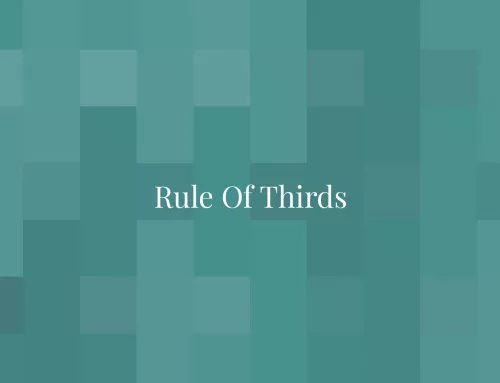As humans, we are constantly bombarded by news stories about crime rates rising in our cities, natural disasters destroying homes and communities around the world and political turmoil destabilizing entire regions. Our response when presented with these kinds of challenges? To look for someone – anyone – who can be held responsible for them. However attractive this kind of scapegoating may seem at first glance (after all,it allows us feel like we’ve solved problems),it has significant disadvantages too.
The Blame Instinct
The Blame Instinct is a cognitive bias that leads us to assign blame or responsibility for a situation or problem to a single individual or group. This instinct can be seen in various aspects of our lives, from our personal relationships to our professional and political spheres. This instinct is often triggered in response to negative events or outcomes, and it can manifest in a variety of contexts, from personal relationships to political and social spheres. Here are some key aspects of the Blame Instinct:
- Simplifies complex situations: The Blame Instinct simplifies complex situations by reducing them to a single individual or group responsible for the problem. This can be comforting in some ways, as it provides a clear target for our anger and frustration. However, it can also lead us to overlook the complex factors that contribute to a problem, such as systemic issues, environmental factors, or a lack of resources
- Inhibits problem-solving: The Blame Instinct can also inhibit problem-solving by focusing our attention on assigning blame rather than finding solutions. This can be particularly problematic in situations where collaboration and cooperation are necessary to address a problem, such as in political or professional settings
- Can lead to scapegoating: The Blame Instinct can also lead to scapegoating, where a single individual or group is unfairly blamed for a problem or situation. This can result in significant harm, both for the individuals or groups being scapegoated and for the broader society or organization that is affected by the problem
- Can be motivated by emotions: The Blame Instinct is often motivated by emotions such as anger, frustration, or fear. These emotions can cloud our judgment and lead us to assign blame unfairly or without sufficient evidence
- Can lead to a lack of accountability: In some cases, the Blame Instinct can also lead to a lack of accountability. By assigning blame to a single individual or group, we may overlook the role that other factors, such as organizational culture or leadership, played in contributing to the problem
Example Of Blame Instinct
A prime example can be seen in how people react during elections.Instead going beyond Political Parties’ Manifestos which will give insights into their future plans rather than just listening campaigns centered on accusing other parties , blaming past governments actions/ In-actions etc.We tend not only get blind towards good policies but also vote based on keeping traditional faults alive.Such acts keeps one away being informed voter hence reaping benefits & losing opportunities everytime they make choices sans knowledge.
When citizens fail retain ability choose wisely over holding onto grudges shown through voting patterns due lack awareness amongst voters,a self-centric ignorance created.Their narrow views also exclude wider perspective- sociopolitical,economic,globally,current state and future needs of nation.
This blame instinct is not limited to politics, however: we see it as a social reaction across fields and circumstances – from headlines blaming millennials for destroying industries,to people faulting others’ behaviors or conditions for their own failures.
Case – Deepwater Horizon Oil Spill
One example of the Blame Instinct in action can be seen in the aftermath of the Deepwater Horizon oil spill in 2010. The explosion and subsequent oil spill in the Gulf of Mexico were catastrophic, with significant environmental damage and loss of life. In the aftermath of the disaster, there was a strong focus on assigning blame and holding individuals and companies accountable for the spill.
One of the primary targets of this blame was BP, the company that owned and operated the Deepwater Horizon rig. BP was widely criticized for its safety practices and environmental record, and there was significant public anger directed at the company in the wake of the disaster. BP was subject to a series of investigations and lawsuits, and the company ultimately agreed to pay billions of dollars in fines and compensation to those affected by the spill.
While BP certainly played a role in the Deepwater Horizon disaster, the Blame Instinct may have led to an oversimplification of the problem. There were a number of complex factors that contributed to the disaster, including failures in safety practices, inadequate government regulation, and a culture of risk-taking within the oil industry. Focusing solely on BP as the responsible party may have prevented a more nuanced understanding of the causes of the disaster and hindered efforts to prevent similar incidents from occurring in the future.
In addition, the Blame Instinct may have led to a lack of accountability for other actors involved in the disaster. While BP faced significant consequences, other companies involved in the operation of the Deepwater Horizon rig, as well as government regulators responsible for overseeing the industry, faced less scrutiny and accountability. This lack of accountability may have contributed to a sense of injustice among those affected by the spill and hindered efforts to prevent future disasters.
Overall, the Deepwater Horizon disaster provides a powerful example of the Blame Instinct in action. While assigning blame and holding companies accountable for their actions is important, it is equally important to recognize the complex factors that contribute to problems and to hold all responsible parties accountable for their actions. By doing so, we can develop a more nuanced and effective approach to addressing the challenges we face.
Advantages
While the Blame Instinct can have negative consequences, there are some potential advantages to assigning blame in certain situations. Here are some potential advantages of the Blame Instinct:
- Promotes accountability: Assigning blame can promote accountability by holding individuals or groups responsible for their actions. This can be particularly important in situations where people may try to evade responsibility or where there are legal or ethical considerations
- Provides closure: Blaming someone for a problem can provide closure for those who have been affected by the situation. By identifying a specific cause or person responsible for the problem, it can be easier to move on and focus on finding solutions or preventing similar problems in the future
- Encourages action: Assigning blame can also encourage action by highlighting the need for change or improvement. By identifying the cause of a problem, we can work to address it and prevent similar issues from arising in the future
- Can lead to justice: In some cases, assigning blame can lead to justice for those who have been wronged. This may involve legal action or other forms of redress, such as compensation or apologies
- Provides a sense of control: Blaming someone for a problem can provide a sense of control in situations where people may feel powerless or overwhelmed. By identifying a specific cause or person responsible for the problem, it can be easier to understand what happened and why.
Blaming someone else often offers us an immediate sense of relief – if something has gone wrong, then at least there’s someone responsible who can be held accountable.This may give individuals control over negative situations by absolving some personal responsibility.However this advantage does come with many limitations like negativity bias,misinformation that make room in lives besides making biased assessments when interacting next time around the same instances
Disadvantages
However, this kind of thinking ultimately prevents productive action towards solving underlying problems.Manipulation by those in power also keeps citizens away from receiving honest information regarding societal challenges & thus resistful towards any changes required to overcome them .It creates “us vs. them” mentality , leading reluctance creating common ground on issues affecting all rather than just few entities. Blame game results into being reactive instead proactive while tackling urgent matters related society,time gets wasted debating about what went wrong earlier which cannot change whilst present opportunities get missed out.
- Oversimplification: The Blame Instinct oversimplifies complex situations by reducing them to a single cause or individual. This can result in overlooking important contributing factors or systemic issues that may have contributed to the problem
- Emotional bias: The Blame Instinct is often driven by emotions such as anger, frustration, or fear. This can lead to unfair or biased assessments of responsibility and can cloud judgment, making it difficult to develop a rational and effective response
- Inhibition of problem-solving: The Blame Instinct can also inhibit problem-solving by focusing attention on assigning blame rather than finding solutions. This can be particularly problematic in situations where collaboration and cooperation are necessary to address a problem, such as in political or professional settings
- Scapegoating: The Blame Instinct can lead to scapegoating, where a single individual or group is unfairly blamed for a problem or situation. This can result in significant harm, both for the individuals or groups being scapegoated and for the broader society or organization that is affected by the problem
- Lack of accountability: In some cases, the Blame Instinct can lead to a lack of accountability. By assigning blame to a single individual or group, we may overlook the role that other factors, such as organizational culture or leadership, played in contributing to the problem
- Emotional motivation: The Blame Instinct is often motivated by emotions such as anger, frustration, or fear. These emotions can cloud our judgment and lead us to assign blame unfairly or without sufficient evidence
- Reduction of trust: The Blame Instinct can also reduce trust between individuals or groups. When individuals feel unfairly blamed or scapegoated, they may become resentful or defensive, which can lead to further conflict and hinder collaboration and cooperation.




